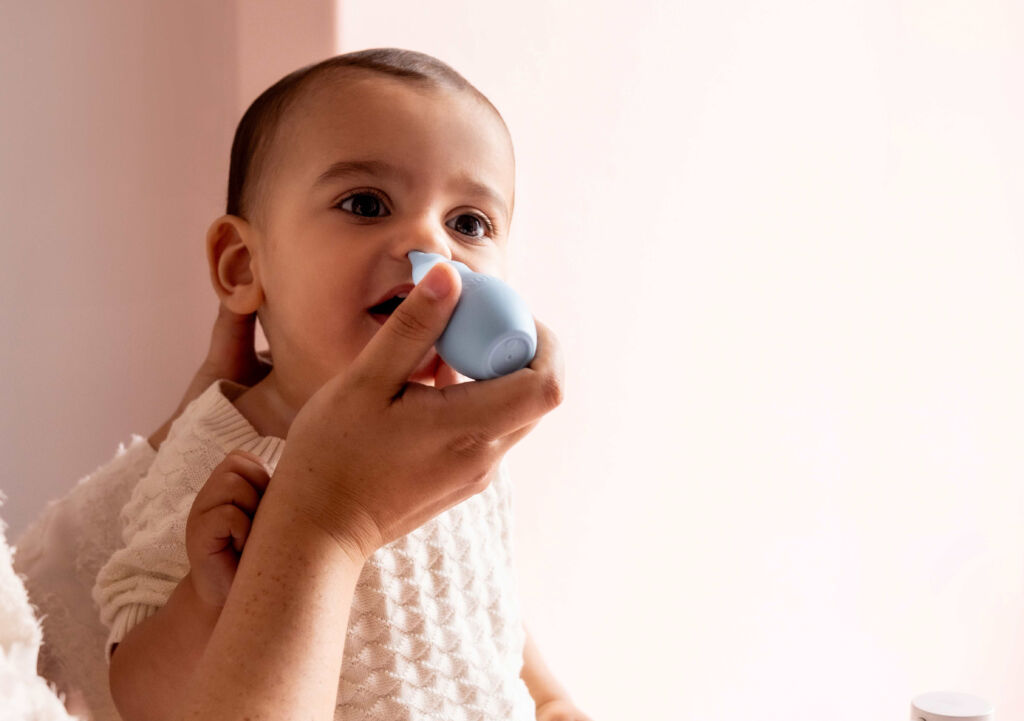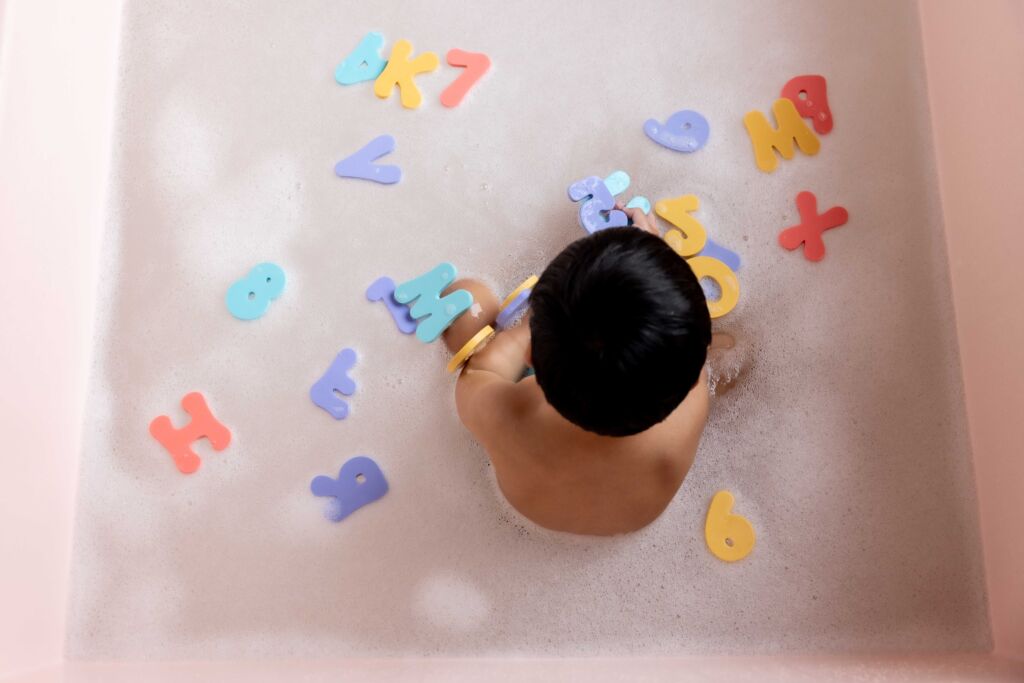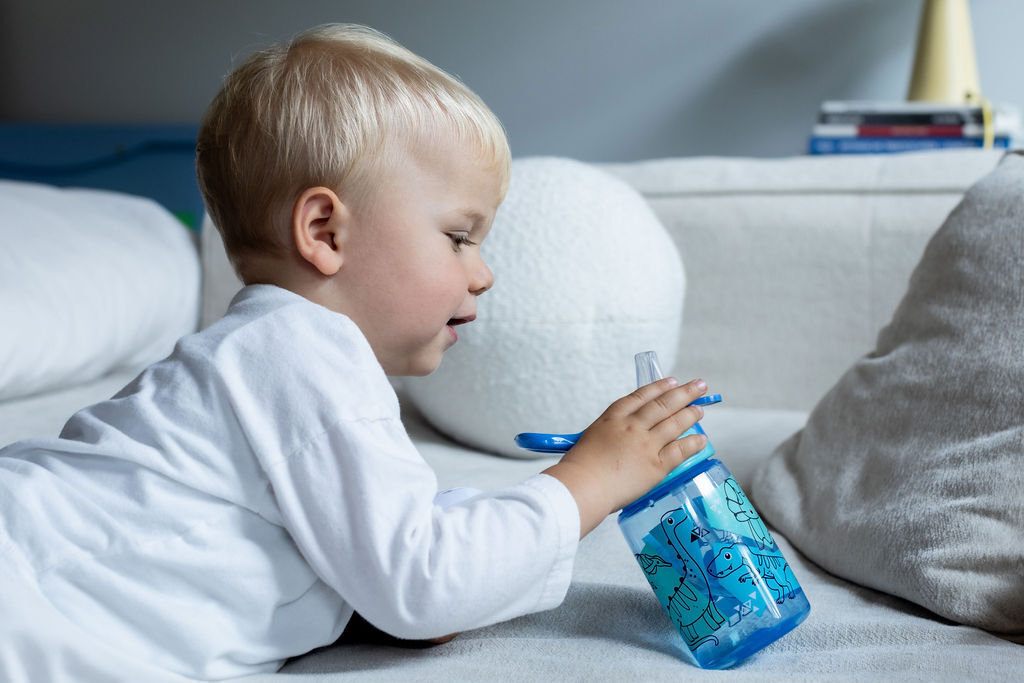Los meses de otoño e invierno traen gérmenes a casa de forma inevitable. Incluso los primeros meses en la guardería suelen convertirse en un caldo de cultivo para los microbios. Provocan congestión nasal y noches de insomnio, dejando a los niños apáticos en brazos de padres cansados. ¿Le suena familiar? Afortunadamente, es solo temporal. Para ayudar a que este período sea un poco más manejable, aquí tiene algunos consejos.
¿Está mi hijo enfermo?
Los niños son más propensos a infecciones que los adultos porque su sistema inmunitario aún está en desarrollo. Aunque enfermarse es parte del proceso para fortalecer sus defensas naturales, también conlleva molestias y preocupaciones.
No siempre es fácil saber si un niño está enfermo. Un termómetro puede ayudar a aclarar la situación. las cosas. Aunque la temperatura corporal varía según el niño, los etudios indican que una fiebre de 38 °C o más suele ser señal de enfermedad.
En los primeros meses, es común que los bebés sufran infecciones respiratorias, como los típicos "resfriados", que suelen ir acompañados de mucosidad nasal. . Estos suelen ir acompañados de mucosidad nasal.
Las enfermedades infantiles clásicas, como la escarlatina o el sarampión, también son comunes. Algunas van acompañadas de vómitos y náuseas, mientras que otras se presentan con erupciones cutáneas.
En caso de síntomas graves, como fiebre alta, dificultad para respirar o llanto persistente - consulte a su médico de cabecera o pediatra.
Despejar las vías respiratorias
Las infecciones respiratorias suelen causar obstrucción nasal, lo que dificulta que su hijo respire, coma o duerma cómodamente. Por lo tanto, despejar las vías respiratorias de su hijo es un primer paso importante. Afortunadamente, existen herramientas útiles para ello.
1. Jeringa nasal
Este dispositivo en forma de pera elimina suavemente el exceso de mucosidad. Apriete la pera, coloque la punta contra la fosa nasal de su hijo y suéltela para extraer la mucosidad.
Una ventaja adicional es que también se puede utilizar para limpiar suavemente los oídos.
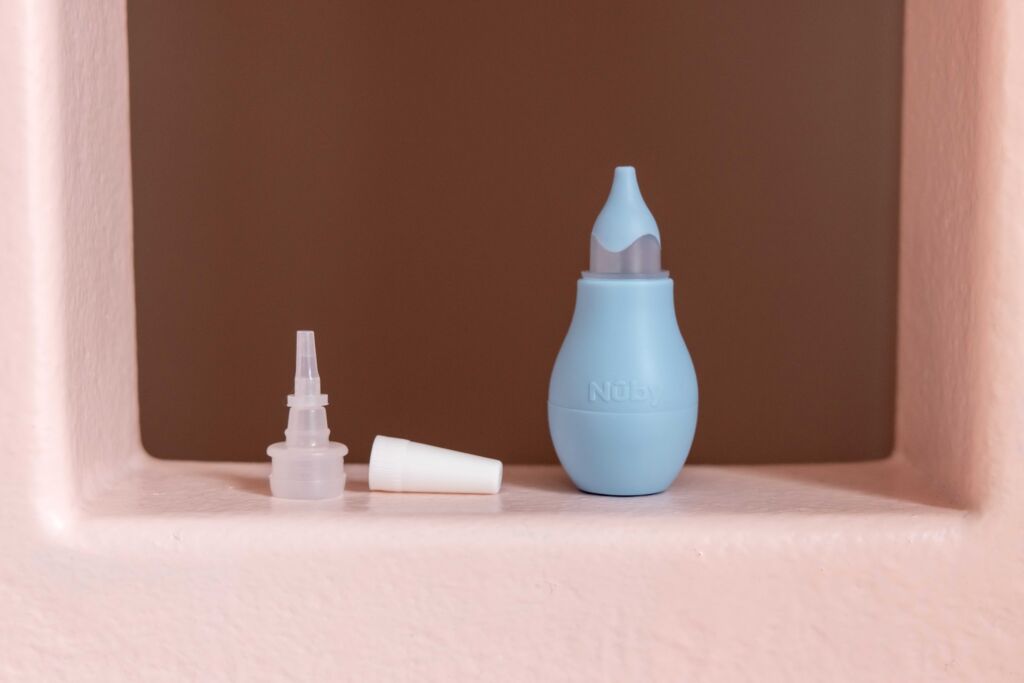
2. Aspirador nasal
Un aspirador nasal funciona con un poco más de fuerza. Introduce un tubo en la fosa nasal de tu bebé y usa la boca para succionar suavemente la mucosidad. Puedes estar tranquilo: la mucosidad no entrará en tu boca gracias al diseño del aspirador.
La succión más fuerte puede resultar un poco incómoda para tu hijo, pero es muy eficaz para las obstrucciones rebeldes.
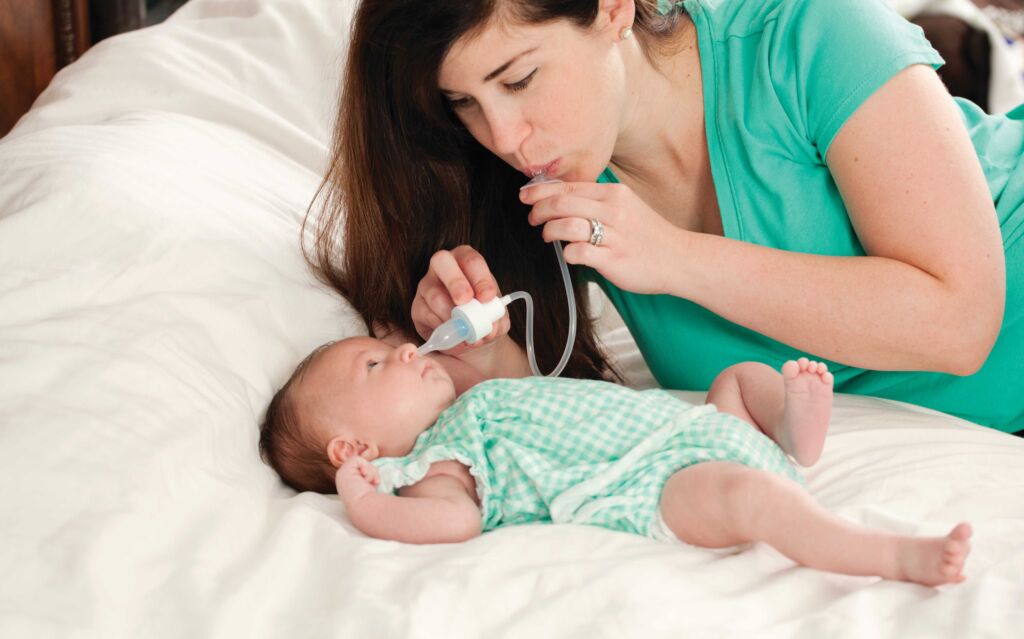
- Limpie siempre la nariz de su hijo con suavidad para evitar irritaciones.
- Desinfecte la boquilla y el aspirador después de cada uso.
- Haga que el proceso sea divertido para tranquilizar a su hijo.
Manténgase hidratado
Es fundamental asegurarse de que su hijo se mantenga correctamente hidratado. Un virus estomacal, por ejemplo, puede causar una importante pérdida de líquidos a través de los vómitos. Del mismo modo, las infecciones respiratorias pueden provocar deshidratación, ya que los niños respiran más por la boca, lo que provoca sequedad en la boca y la garganta.
Anime a su hijo a beber con regularidad, ofreciéndole pequeñas cantidades de agua, leche materna o frutas y verduras ricas en agua. Los pequeños sorbos frecuentes suelen ser más manejables que las grandes cantidades de una sola vez.

Administrar medicamentos sin complicaciones
El tipo de medicamento que necesita tu hijo depende de su enfermedad. Las opciones van desde supositorios y pomadas hasta jarabes, polvos y comprimidos.
Pomadas: Son fáciles de aplicar y resultan especialmente útiles para afecciones cutáneas como la varicela. A muchos niños les agrada la sensación calmante que proporcionan.
Jarabes: Administrar un jarabe puede ser todo un desafío. Si una cuchara no funciona, prueba con una jeringa dosificadora o un biberón especial para bebés, que puede facilitar la toma.
Pastillas: Tragar una pastilla no siempre es fácil, incluso para los adultos. Una técnica útil es colocar la pastilla en la lengua de tu hijo y animarle a tragarla con un sorbo de agua.
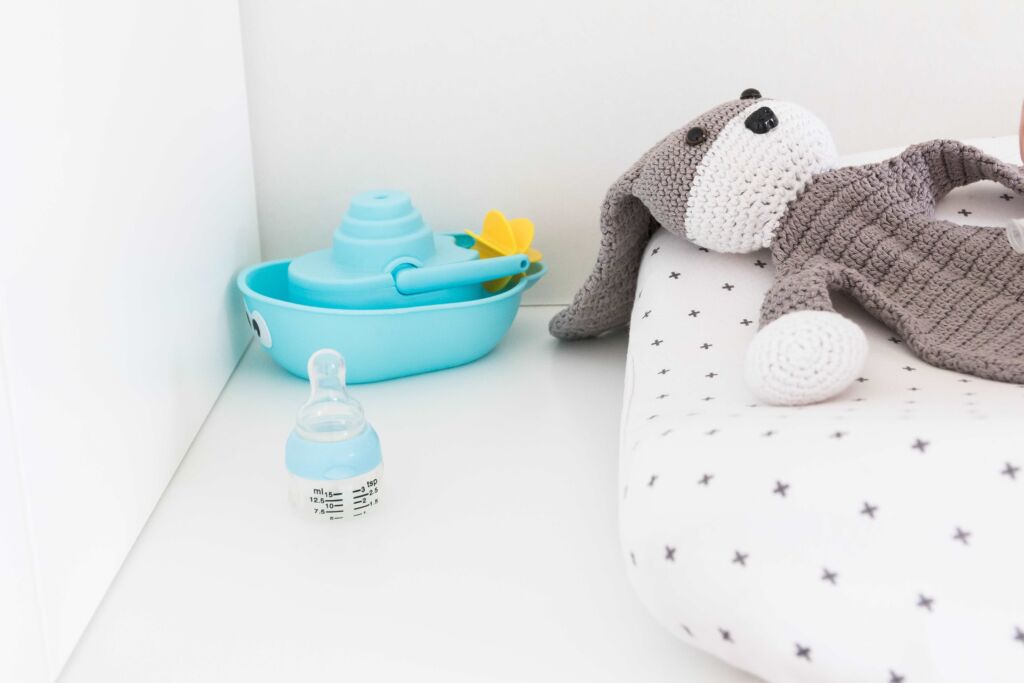
Brinda mayor comodidad
Cuando tu hijo no se siente bien, lo más importante es proporcionarle comodidad. Aquí tienes algunas estrategias:
1. Un ambiente saludable
Mantén la temperatura de la habitación alrededor de 18 °C.
Asegúrese de que el aire esté suficientemente húmedo con un humidificador o colocando un recipiente con agua sobre el radiador.
Deje entrar aire fresco de vez en cuando.
2. Un espacio de descanso acogedor
Cubre la cama de tu hijo con mantas suaves. Incluye su peluche favorito o un objeto reconfortante para ayudarle a relajarse.
3. Dormir con la cabeza elevada
Una posición elevada puede facilitar la respiración. Si no tienes un colchón inclinado, coloca una almohada debajo del colchón o usa bloques para elevar la cabecera de la cama.
4. Descanso extra
Asegúrate de que tu hijo duerma en un entorno tranquilo y oscuro, sin ruidos ni luces brillantes que puedan pertubar su descanso.
5. Mas atención y cariño
Ofrécele abrazos, cántale canciones o léale cuentos para distraerlo y tranquilizarlo en este momento difícil.
Date un respiro
Cuidar de un niño enfermo puede ser muy agotador. Tu pequeño puede exigir más atención durante el día e interrumpir tu sueño por la noche. Esto puede hacer que te sientas agotado y menos productivo.
Sé amable contigo mismo. No te sientas culpable si pierdes la paciencia, eres humano.
Busca soluciones siempre que sea posible. Si te ayuda mentalmente quedarte en casa con tu hijo, consulta las políticas de tu empresa sobre permisos para cuidadores.
Comparta la responsabilidad con su pareja, si la tiene, y no dude en pedir ayuda a un familiar, vecino o amigo. Un breve descanso puede marcar la diferencia a la hora de evitar el agotamiento.
